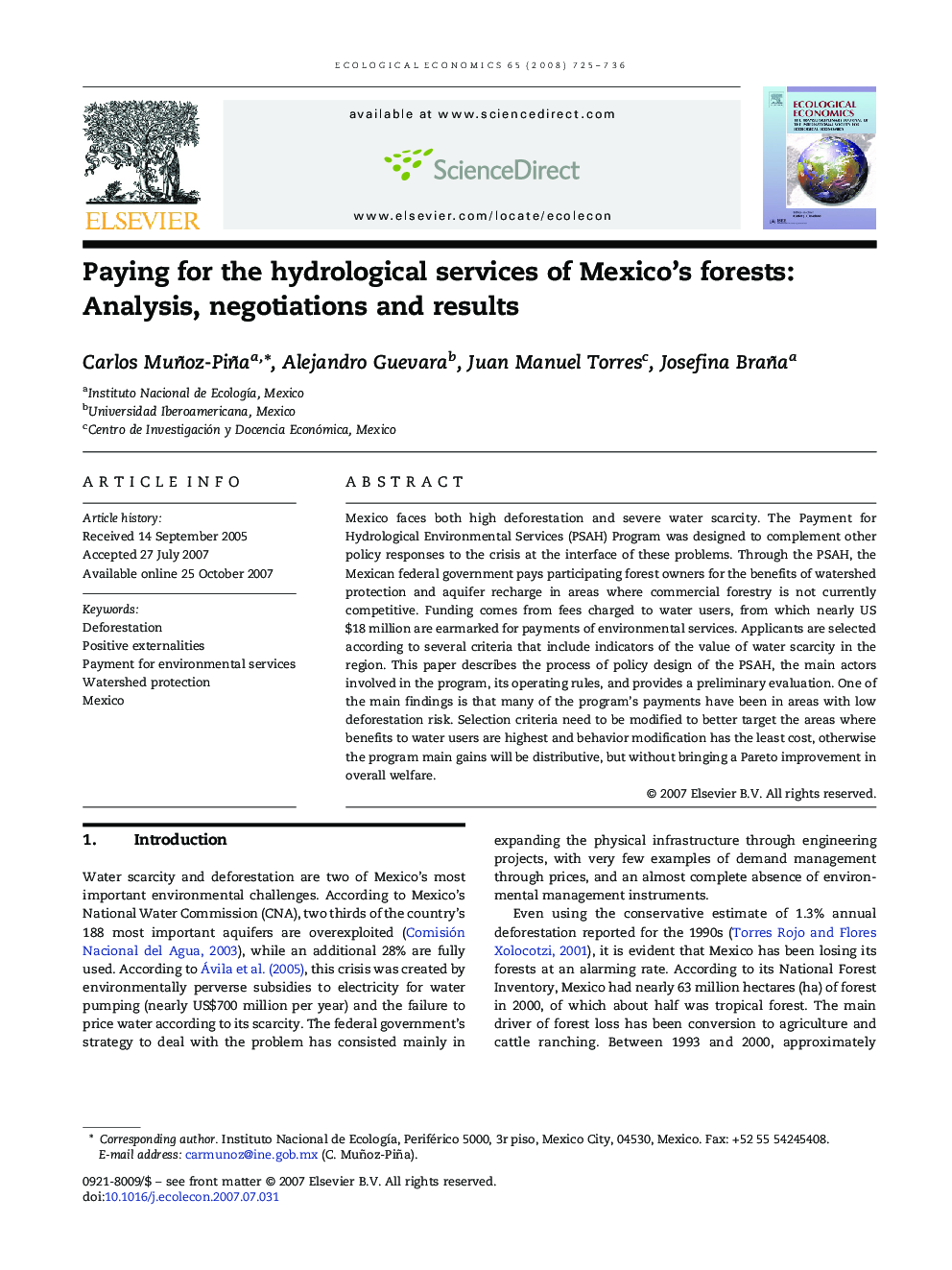| Article ID | Journal | Published Year | Pages | File Type |
|---|---|---|---|---|
| 5051346 | Ecological Economics | 2008 | 12 Pages |
Abstract
Mexico faces both high deforestation and severe water scarcity. The Payment for Hydrological Environmental Services (PSAH) Program was designed to complement other policy responses to the crisis at the interface of these problems. Through the PSAH, the Mexican federal government pays participating forest owners for the benefits of watershed protection and aquifer recharge in areas where commercial forestry is not currently competitive. Funding comes from fees charged to water users, from which nearly US$18Â million are earmarked for payments of environmental services. Applicants are selected according to several criteria that include indicators of the value of water scarcity in the region. This paper describes the process of policy design of the PSAH, the main actors involved in the program, its operating rules, and provides a preliminary evaluation. One of the main findings is that many of the program's payments have been in areas with low deforestation risk. Selection criteria need to be modified to better target the areas where benefits to water users are highest and behavior modification has the least cost, otherwise the program main gains will be distributive, but without bringing a Pareto improvement in overall welfare.
Keywords
Related Topics
Life Sciences
Agricultural and Biological Sciences
Ecology, Evolution, Behavior and Systematics
Authors
Carlos Muñoz-Piña, Alejandro Guevara, Juan Manuel Torres, Josefina Braña,
